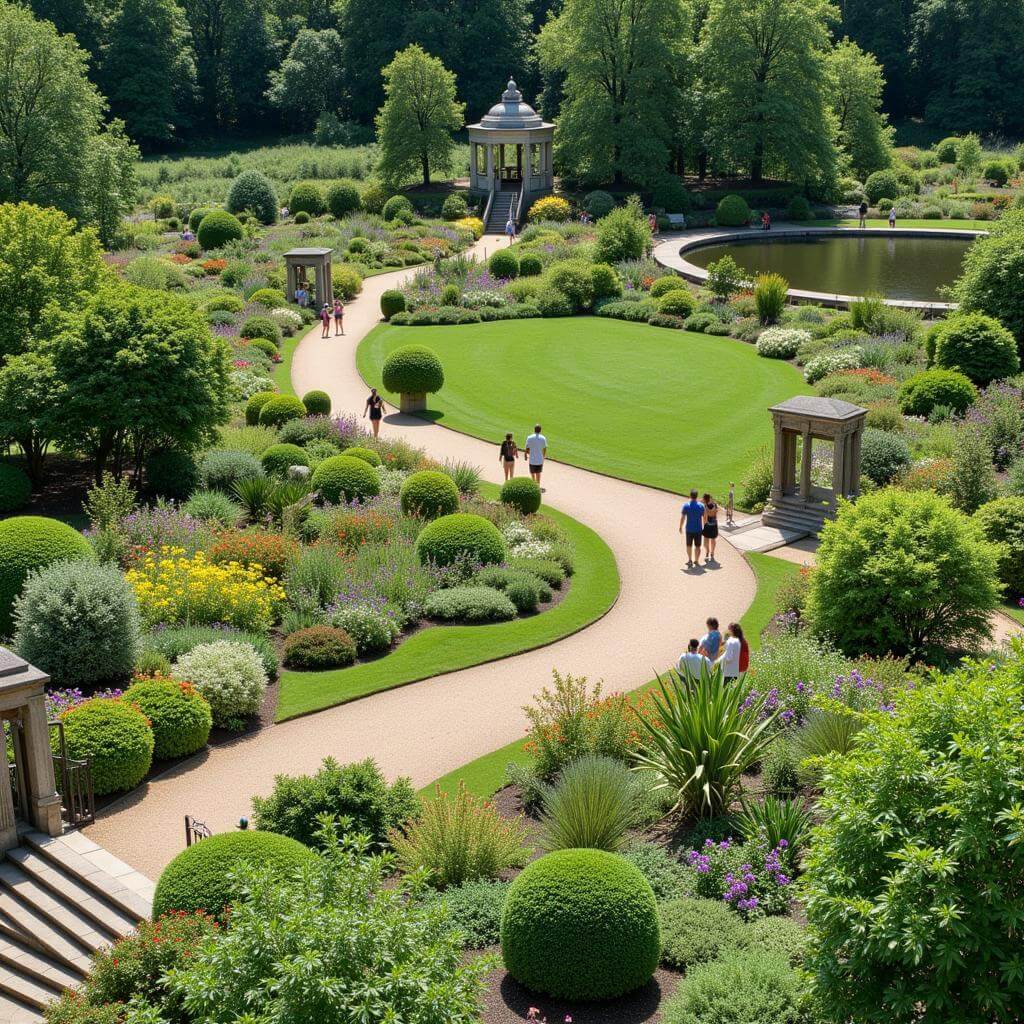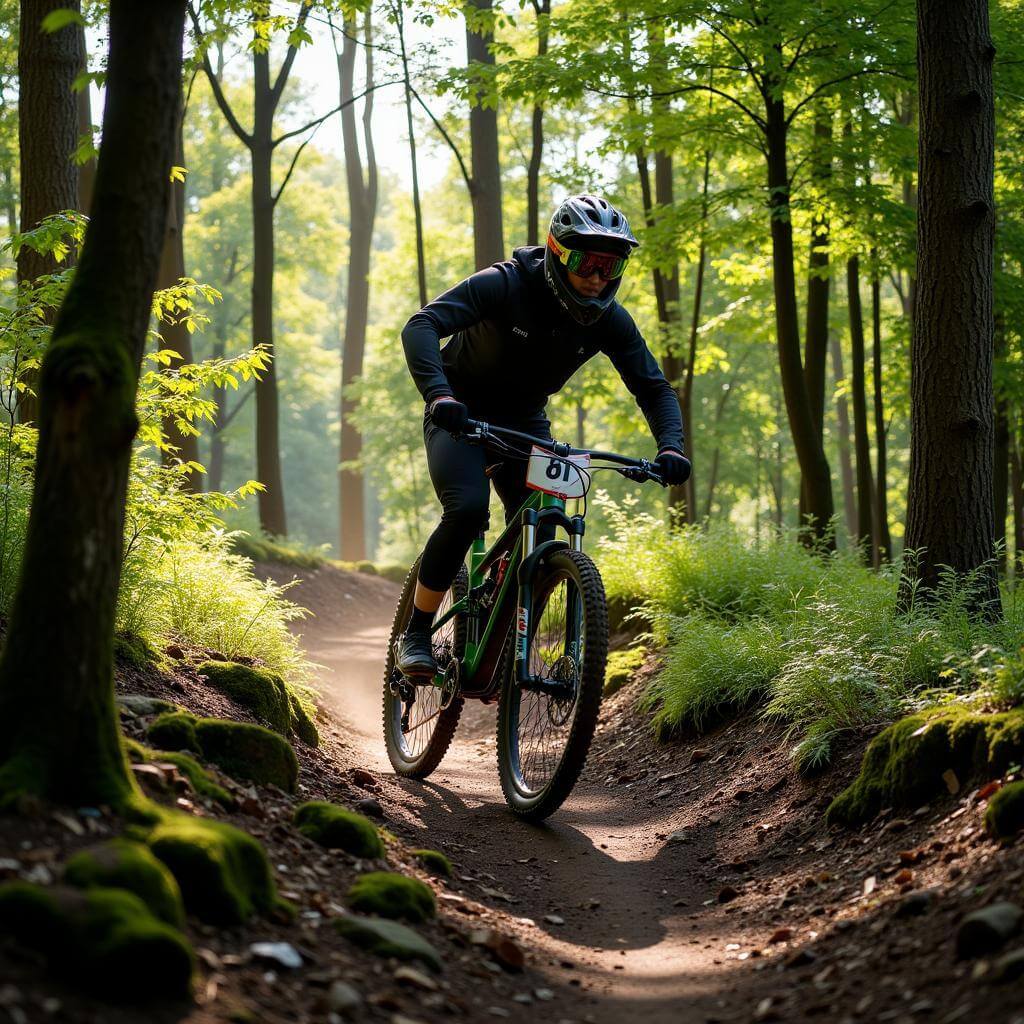The topic of describing a favorite place to go on weekends is a popular one in IELTS Speaking tests. It allows examiners to assess candidates’ ability to express personal preferences, describe locations, and discuss leisure activities. This topic has appeared frequently in past exams and is likely to continue being relevant in future tests.
Describe a park or beach where you go to relax is a similar topic that you might encounter in your IELTS Speaking test. Being prepared for such questions can significantly boost your confidence and performance.
Part 1: Introduction and Interview
In this section, the examiner may ask you some general questions about your weekends and favorite places. Here are a few potential questions:
- Do you usually go out on weekends?
- What’s your favorite thing to do on weekends?
- Is there a particular place you like to visit on weekends?
Let’s look at a sample answer for the third question:
Examiner: Is there a particular place you like to visit on weekends?
Candidate (Band 7-8 response): Yes, absolutely. I’m quite fond of visiting the local botanical gardens on weekends. It’s a serene and picturesque spot that offers a welcome respite from the hustle and bustle of city life. The gardens are meticulously maintained and feature an impressive variety of plants and flowers, which I find both educational and rejuvenating to explore.
Part 2: Long Turn
For this section, you’ll be given a cue card with a topic to speak about for 1-2 minutes. Here’s a sample cue card related to our main topic:
Describe a favorite place you like to go on weekends
You should say:
- Where this place is
- How often you go there
- What you do there
- And explain why you like going there A beautiful botanical garden with diverse plants and walking paths
A beautiful botanical garden with diverse plants and walking paths
Sample Answer (Band 8-9)
I’d like to talk about my favorite weekend destination, which is the Royal Botanical Gardens in my city. These gardens are located about a 20-minute drive from my home, on the outskirts of the city center.
I try to visit the gardens at least twice a month, usually on Sunday mornings when the atmosphere is particularly tranquil. The frequency of my visits depends on my schedule and the weather, but I always make an effort to go there regularly as it’s such a rejuvenating experience.
When I’m at the gardens, I engage in various activities. Primarily, I enjoy taking leisurely strolls along the winding paths, admiring the diverse flora and occasionally stopping to read the informative plaques about different plant species. It’s not uncommon for me to find a quiet bench where I can sit and read a book or simply contemplate in peace. Sometimes, I bring a sketchpad and try my hand at botanical drawing, though I’m far from an expert.
The reasons why I’m so fond of this place are manifold. Firstly, it offers a much-needed escape from the urban environment, allowing me to immerse myself in nature without having to travel far. The gardens are impeccably maintained, with an impressive array of both local and exotic plants, which I find both educational and aesthetically pleasing. The serenity of the environment is particularly appealing; the soft rustle of leaves and chirping of birds create a soothing soundtrack that helps me de-stress and recharge for the week ahead.
Moreover, the gardens change with the seasons, offering a new experience each time I visit. Whether it’s the vibrant colors of spring blossoms, the lush greenery of summer, the warm hues of autumn leaves, or the stark beauty of winter landscapes, there’s always something new to appreciate.
In essence, the Royal Botanical Gardens serve as my personal sanctuary, a place where I can reconnect with nature, find inspiration, and maintain a sense of balance in my life. It’s a testament to the importance of green spaces in urban areas and a reminder of the restorative power of nature.
Follow-up Questions
- Do you think it’s important for cities to have public gardens or parks?
- How do you think urban green spaces impact people’s quality of life?
Sample answer (Band 8-9):
Absolutely, I believe public gardens and parks are crucial for urban areas. They serve multiple functions beyond just aesthetics. Firstly, they act as ‘green lungs’ for cities, helping to improve air quality and reduce urban heat. Secondly, they provide essential recreational spaces for residents, promoting physical activity and mental well-being. Moreover, public gardens often serve as educational resources, allowing people to learn about local flora and ecosystems.
Urban green spaces have a profound impact on people’s quality of life. They offer a respite from the concrete jungle, reducing stress and improving mental health. These spaces encourage community interaction, providing venues for social activities and fostering a sense of community. From an environmental perspective, they support biodiversity within cities and can help mitigate the effects of climate change. Economically, proximity to well-maintained green spaces often increases property values. In essence, urban green spaces contribute to creating more livable, sustainable, and resilient cities, directly enhancing the overall quality of life for urban dwellers.
Part 3: Two-way Discussion
In this section, the examiner will ask more abstract questions related to the topic. Here are some potential questions and sample answers:
Examiner: How do you think the concept of leisure time has changed in recent years?
Candidate (Band 8-9 response): The concept of leisure time has undergone a significant transformation in recent years, largely due to technological advancements and shifting societal values. Traditionally, leisure time was clearly delineated from work hours, often associated with physical activities or social gatherings outside the home. However, the rise of digital technology and the internet has blurred these lines considerably.
Nowadays, many people engage in ‘micro-leisure’ activities throughout the day, such as browsing social media or watching short videos, rather than having dedicated blocks of leisure time. This shift has led to a more fragmented approach to relaxation. Additionally, the increased connectivity has paradoxically made it more challenging for some individuals to truly ‘switch off’ from work, leading to a phenomenon known as ‘work-life blending’ rather than work-life balance.
Moreover, there’s been a growing emphasis on ‘productive’ leisure, where people feel pressured to use their free time for self-improvement or side hustles. This trend reflects broader societal shifts towards constant productivity and self-optimization.
On the positive side, there’s also been an increased recognition of the importance of mental health and well-being, leading some to prioritize more mindful and purposeful leisure activities like meditation, yoga, or spending time in nature.
In essence, while technology has provided more options for how we spend our leisure time, it has also complicated our relationship with it, creating both opportunities and challenges in how we perceive and utilize our free time.
Examiner: Do you think the way people spend their weekends varies significantly across cultures?
Candidate (Band 7-8 response): Yes, I believe there are notable differences in how people spend their weekends across various cultures, although globalization has led to some homogenization of leisure activities.
In many Western cultures, weekends are often seen as personal time, with a focus on individual or family-based activities. This might include pursuing hobbies, going on short trips, or engaging in recreational activities. There’s often an emphasis on ‘me time’ or relaxation.
In contrast, some Asian cultures traditionally place a stronger emphasis on family gatherings during weekends. It’s common to see extended families coming together for meals or outings. In Japan, for instance, weekends might involve group activities like visiting hot springs or participating in local festivals.
Religious practices also play a significant role in shaping weekend activities in many cultures. In predominantly Muslim countries, Friday is often the main day of rest and prayer, while in Jewish culture, the Sabbath from Friday evening to Saturday evening is observed as a day of rest and spiritual reflection.
Urban-rural divides within cultures can also lead to differences. In cities, weekends might involve more consumer-oriented activities like shopping or dining out, while in rural areas, they might revolve more around community events or outdoor activities.
It’s worth noting, however, that global trends like binge-watching TV series or playing video games are becoming increasingly common across cultures, especially among younger generations.
In conclusion, while there are certainly cultural differences in weekend activities, these distinctions are becoming less pronounced as global cultural exchange continues to increase.
Key Vocabulary and Phrases for High Scores
-
Rejuvenating /rɪˈdʒuːvəneɪtɪŋ/ (adjective): Making one feel younger or more energetic.
Example: “I find walking in the park very rejuvenating after a long week at work.” -
Sanctuary /ˈsæŋktʃuəri/ (noun): A place of refuge or safety.
Example: “The botanical garden serves as my personal sanctuary in the busy city.” -
Immerse oneself /ɪˈmɜːs wʌnˈself/ (phrasal verb): To involve oneself deeply in a particular activity or interest.
Example: “I love to immerse myself in nature during my weekend visits to the countryside.” -
Restorative /rɪˈstɔːrətɪv/ (adjective): Having the ability to restore health, strength, or well-being.
Example: “The restorative power of nature is evident in how refreshed I feel after a day in the park.” -
Mindful /ˈmaɪndfʊl/ (adjective): Conscious or aware of something.
Example: “I try to be mindful of how I spend my leisure time to ensure it’s truly relaxing.”
Describe a place in your country where you go for a weekend getaway can be another interesting topic to practice with these vocabulary items and phrases.
Examiner’s Advice
To achieve a high score in the IELTS Speaking test, particularly when describing your favorite weekend place:
- Use a range of vocabulary, including less common words and idiomatic expressions.
- Vary your sentence structures, using both simple and complex forms.
- Speak fluently with minimal hesitation, but don’t rush. Natural pauses are acceptable.
- Provide detailed responses, expanding on your ideas with examples and explanations.
- Maintain good pronunciation and intonation throughout your responses.
- Show your ability to discuss abstract concepts, especially in Part 3.
Remember, practice is key. Regularly describing places and discussing leisure activities will help you become more comfortable and fluent with this topic.
 IELTS candidate practicing speaking with an examiner
IELTS candidate practicing speaking with an examiner
Describe a foreign dish you want to learn to cook is another interesting topic you might encounter in your IELTS Speaking test. Practicing a variety of topics will help you be better prepared for any question that comes your way.


